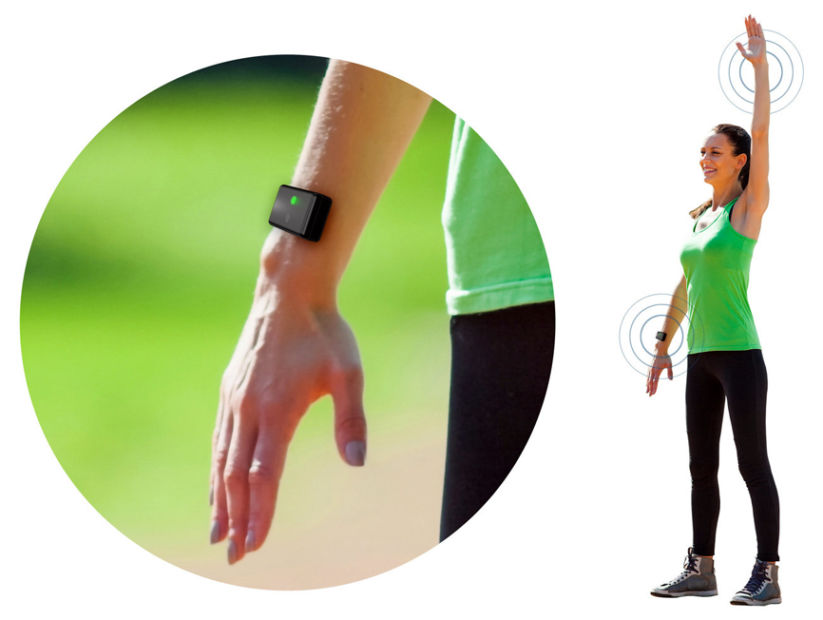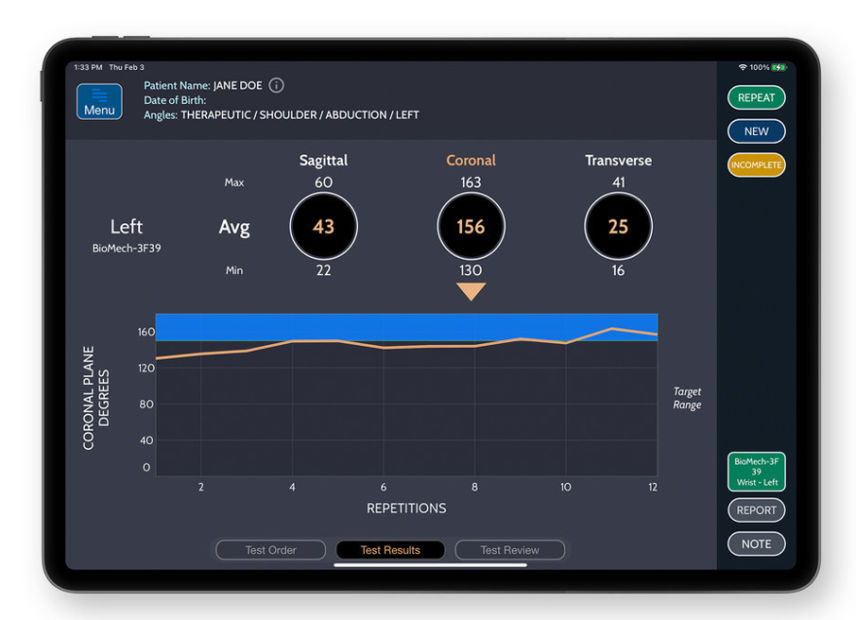BioMech AI analyses body motion
- February 15, 2022
- Steve Rogerson

Virginia-based BioMech has introduced AI-enabled, clinically actionable real-time motion analytics to improve healthcare.
Called BioMech Lab, it uses motion as a functional biomarker to quantify relevant aspects of physical, surgical, pharma and cognitive therapies
Responding to growing demand for clinically actionable, quantifiable data to guide and demonstrate the efficacy of treatment decisions, BioMech Lab arms clinicians with the ability to capture in real time the relevant motion metrics necessary to evaluate rapidly, design and monitor physical, surgical, pharma and cognitive therapies.
Coupling sensor technology with artificial intelligence (AI) and machine learning (ML) algorithms and interactive biofeedback, it captures motion data in clinical or real-world settings to deliver precise, accurate and reproducible assessments and treatment modifications that can stratify risk and improve care outcomes.
“Functional motion is a powerful measure of health and includes such fundamental aspects as balance, symmetry, range of motion, voluntary motor responses to stimuli and complex movements like gait,” said BioMech co-founder Frank Fornari. “With BioMech Lab, clinicians can fully and accurately assess these critical aspects of motion, design treatments and monitor and report outcomes for numerous standard tests and clinical conditions, meaning virtually any clinical specialty can now perform medically necessary tests at the appropriate frequency as part of a comprehensive diagnosis and treatment plan.”
BioMech Lab is applicable to multiple specialties. With secure and immediate access via mobile devices and/or a user-friendly web interface, it improves treatment outcomes by:
- Noninvasively capturing normal and pathological motion;
- Longitudinally assessing progress and, when necessary, modifying treatment;
- Enabling evidence-based clinician-patient interaction and engagement; and
- Providing secure, anytime-anywhere cloud-based access to patient metrics and reports in a HIPAA-compliant laboratory information system.
“BioMech Lab has been a transformative addition to our clinic’s treatment of traumatically injured patients, all of whom have realised significant improvements, typically with the first session,” said LD Empting, director of the Independent Neurodiagnostic Clinic, noting that it lets the clinic objectively assess and mitigate fall risk and quantitatively monitor for medication effects and side effects. “BioMech Lab in our non-PT clinic gives us real-time, data-driven, functional restoration. We are improving patient outcomes and doing so in a fashion that allows clinicians and insurance carriers alike to monitor rates of improvement and functionality.”

Patented sensor technology ensures capture of the quality data required for the AI and ML algorithms to learn how to transform a patient’s motion patterns, including:
- Gait metrics such as timing, impact, truncal deviation and gait cycle;
- Trajectory, timeline and pattern of balance events in three dimensions, including deviation, recovery and timeline;
- Valuated total movement as measured by the degree of symmetry between two sensors;
- Range of motion in sagittal, frontal and transverse planes autonomously, including joint, ground, initial and maximum, minimum and last metrics; and
- Simple reaction test, choice reaction test and discrimination reaction test to derive cognition metrics including latency and correctness.
“Powered by our proprietary AI and ML engine, BioMech Lab is the perfect demonstration of motion with meaning,” said Fornari. “It is the only AI-driven clinical device capable of capturing the real-time, comprehensive and quality data necessary to drive diagnostics and therapeutics and deliver the long-term efficacy outcomes payers require for appropriate reimbursement.”
Headquartered in Richmond, Virginia, BioMech develops and distributes real-time motion analytics that quantify and improve patient and user outcomes in healthcare, sports, wellness and industrial sectors. Founded by scientists and clinicians with expertise in biophysics, anatomy, genetics, neurophysiology, biomechanics, mathematics, materials sciences, fabrication, electrical engineering and computer science, its core technology is comprised of hardware and software, including integrated mobile apps and analytics, web applications, sensors, visual learning systems and wearable technology. For example, BioMech Healthwear provides real-time, precise, accurate and reproducible clinically relevant information and feedback to improve health, quality of life and performance.




